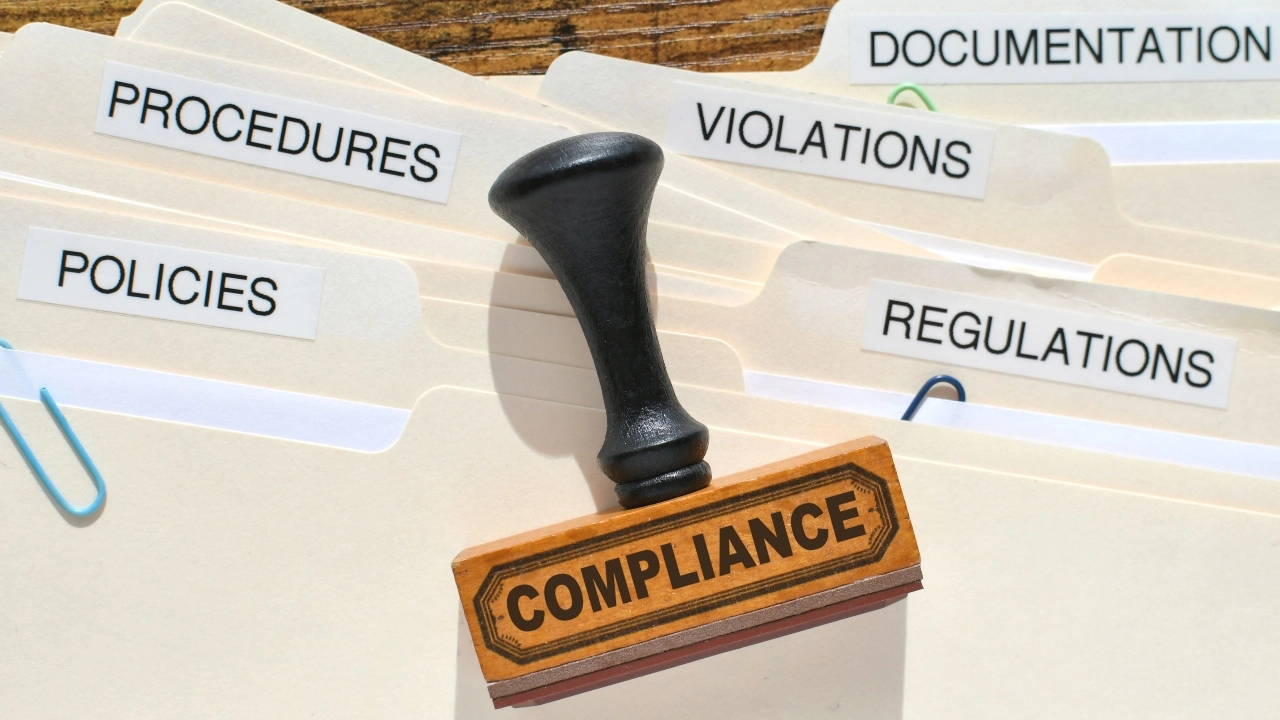Navigating ever-evolving cannabis regulations can feel like a high-stakes poker game.
With varying laws at federal, state and local levels, staying compliant is paramount to success and avoiding hefty penalties.
Here are six key compliance tips to help you navigate the intricate world of cannabis regulations:
1. Know your jurisdiction: federal, state and local laws
Cannabis’s legal status is a complex patchwork.
While some states have legalized cannabis for medical and/or recreational use, it remains a Schedule 1 controlled substance under federal law. This creates significant challenges for businesses, particularly concerning banking and interstate commerce.
Beyond state lines, local municipalities often impose additional restrictions, including zoning laws, operational fees and specific permitting requirements.
- Tip: Thoroughly research and understand the specific regulations governing cannabis in your precise location (city, county and state). Don’t assume state legalization means complete freedom; local ordinances can add layers of complexity. Consult official government websites and consider legal counsel specializing in cannabis law.
2. Prioritize licensing and permitting
Operating legally in the cannabis industry hinges on obtaining and maintaining the correct licenses and permits.
These vary widely depending on the type of business (cultivation, manufacturing, distribution, retail, testing) and jurisdiction.
The application process is often rigorous, requiring extensive documentation, background checks and detailed facility plans.
- Tip: Start the licensing process early – it can be lengthy and demanding. Be meticulous with your applications and ensure all criteria are met. Be aware of renewal deadlines and any ongoing documentation or inspection requirements.
3. Implement robust seed-to-sale tracking
Many regulated cannabis markets mandate comprehensive seed-to-sale tracking systems to monitor every stage of a cannabis product’s lifecycle, from cultivation and processing to testing, packaging and final sale.
This transparency is crucial for preventing illegal diversion, ensuring product safety and providing accountability.
- Tip: Invest in reliable seed-to-sale tracking software like Metrc, BioTrack or Flowhub that integrates with your inventory and point-of-sale systems. Regularly audit your data for accuracy and completeness to ensure seamless reporting to regulatory bodies.
4. Adhere to product testing, packaging and labeling standards
Consumer safety is a priority in cannabis regulation.
This means rigorous testing for potency, pesticides, heavy metals and microbial contaminants.
Packaging often requires child-resistant features and tamper-evident seals. Labeling must be accurate, providing crucial information like THC/CBD content, ingredients, warnings and batch numbers. Misleading claims are strictly prohibited.
- Tip: Partner with state-approved, accredited testing laboratories. Ensure all your products meet the specific packaging and labeling requirements for each market you operate in. Stay updated on any changes to these standards, which can evolve frequently.
5. Cultivate a culture of compliance through training and audits
Compliance isn’t a one-time checkbox; it’s an ongoing commitment.
Regular employee training on updated regulations, internal policies and best practices is essential.
Conducting routine internal audits helps identify potential compliance gaps before they lead to official violations.
- Tip: Designate a compliance officer or team responsible for monitoring regulatory updates and implementing new procedures. Schedule regular training sessions for all staff members. Conduct frequent internal audits and consider engaging third-party compliance consultants for objective assessments.
Subscribe to the MJBiz Factbook
Exclusive industry data and analysis to help you make informed business decisions and avoid costly missteps. All the facts, none of the hype.
What you will get:
- Monthly and quarterly updates, with new data & insights
- Financial forecasts + capital investment trends
- State-by-state guide to regulations, taxes & market opportunities
- Annual survey of cannabis businesses
- Consumer insights
- And more!
6. Stay informed and adapt to evolving regulations
The cannabis industry is dynamic, with laws and regulations constantly changing.
What’s compliant today might not be tomorrow. Staying ahead of these shifts is crucial for long-term success.
- Tip: Subscribe to industry newsletters, join cannabis industry associations and attend workshops or conferences. Monitor updates from state cannabis control boards and regulatory agencies. Proactively track policy revisions to adjust your strategies and operations accordingly. Consider leveraging technology solutions that provide real-time compliance updates.
(Note: AI assisted in summarizing the key points for this story.)
Medical Disclaimer:
The information provided in these blog posts is intended for general informational and educational purposes only. It is not a substitute for professional medical advice, diagnosis, or treatment. Always seek the advice of your physician or other qualified healthcare provider with any questions you may have regarding a medical condition. The use of any information provided in these blog posts is solely at your own risk. The authors and the website do not recommend or endorse any specific products, treatments, or procedures mentioned. Reliance on any information in these blog posts is solely at your own discretion.






